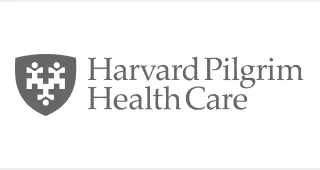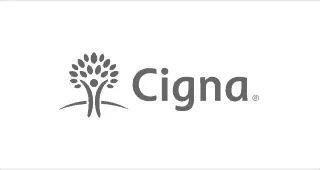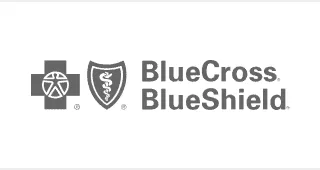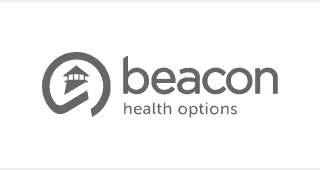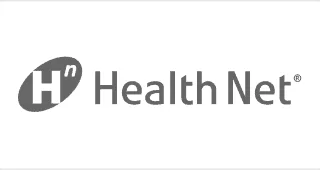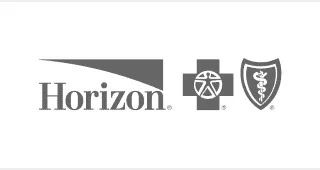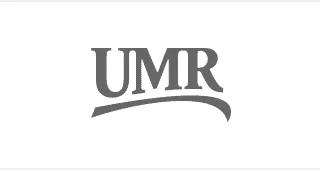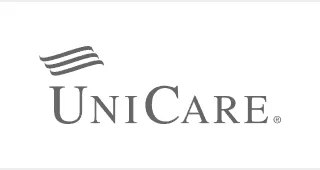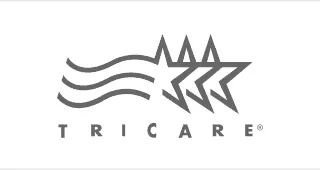What is Medication Assisted Treatment?
Medication-assisted treatment (MAT) is a comprehensive approach to treating substance use disorders, most commonly opioid use disorders, alcohol use disorders, and nicotine addiction. It combines the use of FDA-approved medications with behavioral therapies and counseling to provide a “whole-patient” approach to the treatment of substance use disorders.
Medication-assisted treatment works by combating the intense cravings associated with withdrawal, reducing the risk of relapse, and helping to prevent life-threatening overdoses. It can be used in both outpatient and inpatient settings, depending on an individual’s needs and preferences. The primary goal of MAT is to improve patient survival, increase retention in treatment, decrease illicit opioid use and other criminal activity among people with substance use disorders, and increase patients’ ability to gain and maintain employment. It also seeks to improve birth outcomes among women who have substance use disorders and are pregnant.
The medications used in the MAT program for substance abuse, such as methadone, buprenorphine, and naltrexone for opioid use disorders, and disulfiram, acamprosate, and naltrexone for alcohol use disorders, are effective in stabilizing the brain’s chemistry, blocking the euphoric effects of opioids and alcohol, relieving physiological cravings, and normalizing body functions. Therapies associated with MAT can help patients modify their attitudes and behaviors related to substance use, increase healthy life skills, adhere to a medication regimen, and persist with other forms of treatment, such as support groups or psychotherapy.
MAT is not a one-size-fits-all approach. Treatment plans are individualized to meet the needs of each patient and are typically part of a larger recovery program that may include medical, psychological, and social services. MAT is conveniently offered in both primary care practices and specialty facilities, enhancing accessibility for patients battling substance use disorders. Regardless of which setting MAT is provided, research shows its most effective use is when it is part of a comprehensive treatment program.
MAT Program
MAT has been found particularly beneficial for individuals battling opioid addiction or alcohol abuse, although it can be customized to treat other types of substance abuse as well. The three medications primarily used, such as Methadone, Buprenorphine, or Naltrexone, are administered under the close supervision of healthcare professionals. They work to alleviate symptoms of withdrawal, reduce cravings, and restore the brain’s normal functions, making it easier for patients to focus on their recovery process.
Alongside medication management, our MAT program for substance abuse includes a range of therapeutic services, including individual therapy, group counseling, and education on substance use disorders. These services aim to help patients understand the nature of their addiction, develop healthy coping skills, and build a strong support system, all crucial for long-term recovery and relapse prevention.
The Effectiveness of Medication-Assisted Treatment
Medication-assisted treatment plays a pivotal role in modern addiction treatment strategies, enhancing the effectiveness of recovery efforts for substance use disorders, including opioid use disorder, alcohol use disorder, and nicotine addiction. Research from the National Institute on Drug Abuse shows that MAT significantly reduces the risk of opioid overdose and is a vital component in opioid addiction treatment. Leveraging the providers’ clinical support system, evidence-based treatment strategies can be offered to assist patients in combating drug/alcohol abuse through the use of one or more of the three medications employed in the MAT program for substance abuse.
Moreover, comprehensive initiatives are advancing in areas like drug courts, where the legal action center advocates for comprehensive treatment over punitive measures, signaling an active mobilization of additional resources. Since the demand for MAT often exceeds availability, efforts are being made to increase its reach, including potential Medicaid coverage reimbursements and technical assistance to healthcare providers to make MAT medications more accessible.
The Effectiveness of Medication-Assisted Treatment for Opioid Use Disorders During Opioid Treatment Programs
MAT is a proven and effective method to address opioid use disorder and provide a path toward recovery. Designed to treat opioid addiction, medications combined with counseling and other critical treatments address the complexities of addiction, which often involve both physical and psychological elements.
Medications are instrumental in managing withdrawal symptoms, reducing cravings, and improving patient survival rates. The medications used in MAT – methadone, buprenorphine, and naltrexone – are each uniquely equipped to manage different aspects of opioid addiction. Methadone and buprenorphine alleviate opioid cravings and symptoms of withdrawal, enabling individuals to focus on their recovery without the constant burden of physical discomfort. In addition to these, a long-acting injection or an extended-release injectable suspension might be utilized, providing a sustained release of medications over time. This can be particularly beneficial in ensuring consistent treatment, especially for individuals with severe addiction.
Is MAT Just Replacing One Addiction With Another?
A common misconception about MAT is the idea that it merely substitutes one drug addiction for another. This perspective, however, fails to comprehend the crucial differences between physical dependence and addiction. Addiction is a disease characterized by compulsive drug use despite harmful consequences, often associated with an uncontrollable craving, inability to control use, and chronic relapses. MAT, conversely, administers carefully prescribed medications to manage withdrawal symptoms and curb cravings, allowing individuals to regain control over their lives.
The Substance Abuse and Mental Health Services Administration addresses this misconception and reinforces the importance of MAT in an effort to reduce stigma and encourage better access to treatment. MAT is not about substituting one addiction with another; rather, it is about using safe, controlled medications under the supervision of healthcare providers to effectively treat substance use disorders. The goal is to aid individuals in achieving full recovery, including the ability to live a self-directed life.
What Forms of Substance Abuse Need Medication-Assisted Treatment?
Medication-assisted treatment (MAT) is an evidence-based treatment that is beneficial for several types of substance abuse disorders, including:
Medications for Opioid Addiction
Medication-assisted treatment (MAT) offers effective treatment of opioid use disorder. (OUD). Opioids include prescription pain relievers such as oxycodone, hydrocodone, and morphine, as well as illicit substances like heroin and fentanyl. Given the high addiction and overdose risk associated with these substances, MAT can be life-saving as they serve to treat opioid use disorder and prevent opioid overdose. According to the Substance Abuse and Mental Health Services Administration, methadone, buprenorphine, and naltrexone are the most common medications used to treat opioid use disorder.
Doctors may prescribe Buprenorphine, Methadone, and Naltrexone medications for opioid use disorder to cater to different needs and situations, offering a versatile approach to treatment. By mitigating withdrawal symptoms and cravings, these medications for opioid use disorders allow individuals to focus on their recovery journey, making long-term sobriety a more achievable goal.
Medications for Alcohol Addiction
Medication-assisted treatment (MAT) has shown significant effectiveness in tackling not only opioid use disorders but also alcohol use disorders. Alcohol use disorder is an issue pervasive in rural counties and major cities alike, causes severe physical and psychological health issues, leading to disruptions in daily life, and has been linked with drug-related crimes and even opioid overdoses in certain cases.
In the fight against alcohol abuse, MAT programs stand at the forefront. They provide a comprehensive treatment approach that includes the prescription of medications such as disulfiram, naltrexone, and acamprosate, all geared toward treating alcohol dependence.
With the opioid epidemic at large, it’s clear that tackling substance use disorders, whether they’re related to alcohol or opioid dependence, requires a multi-faceted strategy. It is here that MAT programs play a crucial role. Not only do they prescribe medications to alleviate the physical symptoms of addiction, but they also provide critical support through therapy and support groups, aiming to treat co-occurring disorders.
Medications for Nicotine Addiction
Medication-assisted treatment (MAT) has been instrumental in combating various substance use disorders, including nicotine addiction, which is prevalent in both urban areas and rural communities. As recognized by the Mental Health Services Administration and various healthcare providers, MAT programs for nicotine addiction can be an effective part of a comprehensive approach to achieving long-term recovery.
Nicotine addiction often manifests as an intense dependence on tobacco products. It is one of the leading causes of preventable deaths globally, making its treatment a top priority for many healthcare providers and addiction medicine specialists.
- Nicotine replacement therapies (NRTs), including gum, patches, inhalers, nasal spray, and lozenges, offer safer, controlled nicotine doses to manage cravings and withdrawal symptoms sans harmful tobacco chemicals.
- Bupropion, an atypical antidepressant, diminishes nicotine cravings and withdrawal symptoms, potentially mitigating smoking’s pleasurable effects by inhibiting dopamine and norepinephrine reuptake.
- Varenicline works by blocking nicotine receptors in the brain. This medication not only helps reduce the pleasure obtained from smoking but also alleviates withdrawal symptoms if a person tries to quit.
Medications for Co-Occurring Mental Health Disorders
Co-occurring mental health disorders, also known as dual diagnoses, present a unique set of challenges. Patients diagnosed with these conditions not only struggle with substance use disorders but also with concurrent mental health issues, such as depression, anxiety, bipolar disorder, or post-traumatic stress disorder (PTSD). To address the complexities of co-occurring disorders, a specialized approach is needed.
MAT provides a way to manage the chemical imbalances often associated with mental health disorders, reducing symptoms and improving overall well-being. This assists patients to engage more effectively in other components of their treatment plan. For instance, in the treatment of opioid use disorders co-occurring with depression, we may employ a MAT approach that incorporates the use of buprenorphine for opioid dependence and an antidepressant for depression. These medications work in tandem to alleviate the physical symptoms of withdrawal and the psychological cravings associated with opioid dependence while also managing the depressive symptoms.
Before patients receive treatment at rehab, our healthcare providers conduct a thorough evaluation of their physical health, psychiatric history, and substance use pattern to create an individualized treatment plan. Following this, we deliver a comprehensive array of psychotherapeutic interventions, psychiatric care, human services, and additional resources to complement MAT.
MAT presents a balanced and integrated approach to the complex task of treating dual diagnoses. It offers the hope of recovery not just to treat alcohol and drug abuse but also from the often debilitating symptoms of mental illness.
Explore Our MAT Program Today
Achieve Wellness and Recovery offers care for individuals struggling with substance use and mental health disorders. Our MAT programs are tailored to meet your individual needs and help you achieve long-term recovery.
We work with most insurance companies. Please note we are not affiliated with or endorsed by insurance companies.
No Medicaid Accepted.




